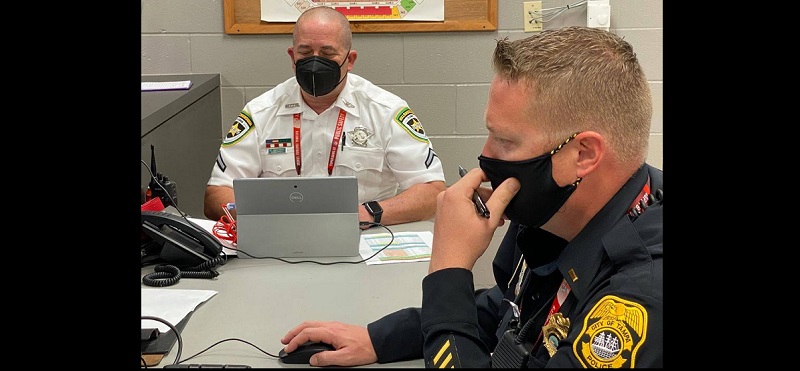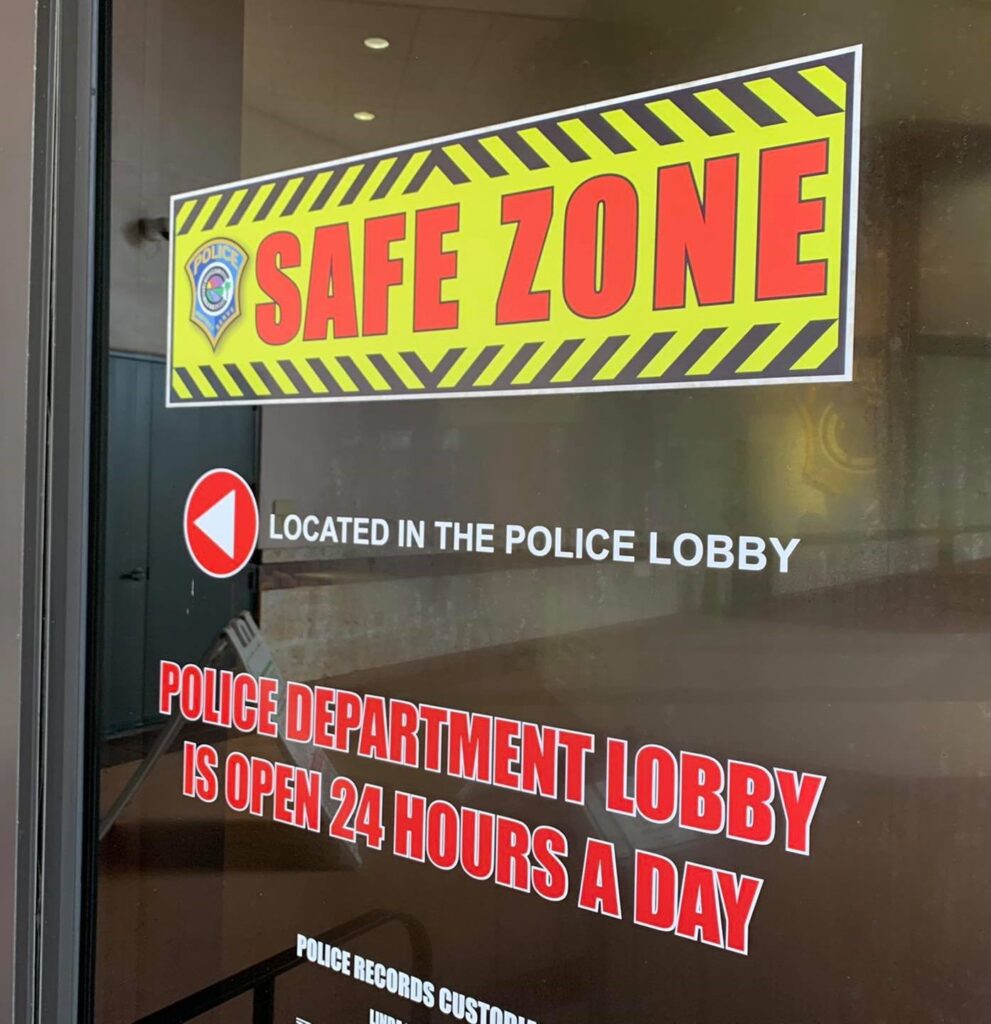
Despite the growing resentment toward social media outlets and their seeming penchant for censorship, control, politicization, and grand manipulation, online data often provides the benefits of intelligence, insights, and clues for law enforcement agencies to preempt bad actors whose e-messaging telegraphs events in the realm of catastrophe and deviancy.
One recent example is the January 6 Capitol Hill insurrection and preludes made online detected by federal, state, and local police personnel. Even though the ostensibly unheeded communiques signaling a potential uprising on federal grounds, leaving many to question why it nevertheless went mostly unimpeded. There has been chatter compelling a 9/11-type commission to sift and answer questions surrounding the dubious nature and insurrection.
Notwithstanding the Capitol Hill casualness and caught-off-guard Capitol Police force, the inherent valuation of law enforcement using social media remains a key component to thwarting nefarious minds and their dirty deeds.
In recent research of mine factoring into the empirical security effort toward Super Bowl 55 in Tampa, police intelligence units from varying law enforcement entities were collectively seated in a central public safety operations center, faces fixated on computer screens, cross-referencing chatter, distilling common language from seemingly coded digi-data, toward a collective effort to unearth potential mayhem from materializing at such a target-rich venue.
Our feature photo above depicts a county deputy and a city policeman among various other police agency personnel (off-screen) homed in on all-things-Super Bowl, with predetermined and spontaneously considered keywords offering search engine results for cops to sift through with proverbial fine-tooth-combing.
With hard lessons indelibly learned from inexplicably tragic circumstances, paying acute attention to otherwise ordinary chatter on the wire can avert life-threatening events from evolving. Despite anti-police trumpeters, cops’ eyes and ears have never been keener and thus could be considered collateral damage if those who oppose LEOs be granted their antithetical wish.
Incidentally, this is not to imply we were not doing online surveillance pre-9/11—we were, just not exactly heeding the online chatter and brewing battle-drum beats. History does indeed repeat itself, yet we are better positioned to rip some of the gory pages from the terror script by getting and staying out ahead of the bombmakers and beheaders and airplane-downers and all manner of barbarism.
A form of barbarism —sexual predation from behind keyboard screens camouflaging perverted bad actors— pedophiles remain a scourge, both in the U.S. and abroad, largely linking to each other via dark web sites found via Internet.
Larger police agencies fortunate enough to fund and assign full-time units to this despicable behavior spend inordinate blocks of time scouring chat rooms filled with filth, commencing investigations electronically (detecting, then building evidence-filled cases) and turning them into physical arrests after definitive identifications are formed. Starts with an IP address and ends with a click-click around wrists.
Over the last few months, we have seen reports (by mostly police sites, not necessarily MSM) of recovered “missing children” and human trafficker arrests of online ghosts exploiting children for their own grotesque gratification and profit.
Partnered with the National Center for Missing & Exploited Children (NCMEC), cops staffing computer screens netted many of these deviates, excavating hundreds of captives cloistered in mostly nondescript dwellings, as if they were nicknacks jumbled together—objects of possession and evidence of oppression.
Besides local law enforcement training in topics regarding the use of social media to catch bad guys/girls conducting themselves inappropriately/illegally, several federal justice-based agencies offer classes to LEOs and prosecutors, availing the latest trends and investigative methodologies to quash such deviants.
In addition to also teaching investigative techniques to many city, county, and state cops, the FBI chronicles human trafficking and assists local LEOs by providing resources. The United States Department of Justice recently partnered with agencies in the Middle District of Florida, offering agents and resources to “combat human trafficking,” often having federal jurisdiction stemming from multinational criminal enterprise and “interstate commerce.”
Synonymously, as NPA recently reported, the Super Bowl always draws massive crowds, and some among the demographic indulge themselves immorally/illegally. Such types are catered to by sex-trade traffickers. Again, LEOs staring at and scrutinizing chatter across laptop screens spend countless hours getting a focused bead on the sexcapades-for-profit purveyors.
After the big game was all said and done, the Hillsborough County Sheriff’s Office (HCSO) in Tampa, Florida extrapolated details from post-event reports. As for online and physical activity involving enterprising sex industry players, HCSO detected and arrested 75.
Touting its Operation Game Over and its successful results, HCSO’s press conference entailed the following statement: “In addition to our endeavors to make Super Bowl LV safe and secure for fans, team HCSO was also working behind the scenes [laptop screens and undercover field operatives] to zero in on human traffickers and those who sexually exploit others.”
Not a lesser but nonetheless helpful scale in a local setting, police departments have set up Safe Zones and merchandise exchange stations to instill personal safety for buyers who seek to purchase item(s) from would-be sellers via exchanges commenced online and physically bartered between absolute strangers.
Very bad things happened in recent years, whereby folks shopping online (Craigslist is infamous) met a presumed legitimate seller at a public location…only to be robbed and/or murdered. The Washington Post published a report exploring 100 murders resulting from online deals which culminated in murder when the sellers met buyers via Craigslist and killed them upon meeting.
The advent of cop shops offering a safe place at government buildings provides a venue in which to not only help ensure the validity of such an exchange but also record the transpiration, all of the aforementioned acknowledged by both seller/buyer to at least provide some sense (litmus test) of integrity and comfort derived thereof.

Although some illicit-minded individuals may not be stacking a full deck of smart cards, to ultimately carry through with a dirty deal in view and on the home court of police HQ is undoubtedly stupid, especially at a place where government officials work and footage of such an exchange is not only recorded but also where that evidence is maintained for prosecution. Sounds animated, I know. But de-evolution often produces backwards behaviors, and cops always have front-row seats to the zany show among malcontent players staging victimizations, so it behooves cops to be directors and providers of safe spaces where innocents looking to acquire a special something get to achieve that goal and depart in one piece.
A prime example comes to us from the Coconut Creek Police Department whose site emphasized its Safe Zone concept for folks to use, noting the complimentary method is “our family protecting yours. This is just a reminder that our lobby is a Safe Zone, meaning it is open 24/7. So, if you’re selling an item on Offer Up, or buying something you’ve seen on Facebook’s Marketplace [or similar e-commerce site], you can have the buyer or the seller meet you here. If they make excuses for not wanting to meet you in our Safe Zone, then you know something might be up.” Ding, ding!
Indeed, this is a great concept with zero screening fees and specially trained and armed quasi-referees allowing use of their homecourt advantage to weed out trickery and thievery.
And to think some people want to abolish the police. Tsk tsk tsk…